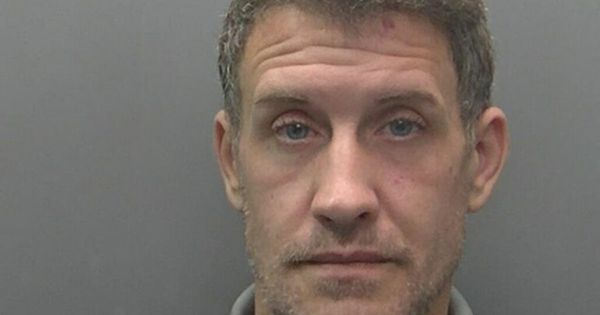
A man who as a 13-year-old boy strangled a six-year-old and posed his naked body in a “star shape” in woodland has been found guilty of the murder 27 years after the killing.
James Watson, 41, was found guilty on Thursday by majority verdict at the Old Bailey of murdering six-year-old schoolboy Rikki Neave in 1994.
Watson killed Rikki in woods in Peterborough, Cambridgeshire, on 28 November 1994, launching a “surprise attack” on the schoolboy and strangling him with his own jacket, the Old Bailey was told.
The schoolboy’s naked body was found the following day in woodland near a children’s den a few minutes’ walk from his home.
The killer had stripped the boy’s body and posed him in a “star shape” for sexual gratification before dumping his clothes in a nearby wheelie bin, jurors were told.

Watson was seen with the victim on the day he went missing and was spoken to by police as a witness at the time.
The case was unsolved until Watson’s DNA was identified on Rikki’s clothes.
Rikki's sister Rochelle Neave, 30, hailed the verdict as a "victory" for the family who had campaigned for justice.
She said: "He thought he'd got away with it for that many years and thought we were just going to go away and roll under the table. We weren't."
She remembered her brother as a "cheeky" and "loving" boy, who would look after his siblings.
Youngest sister Sheradyn Neave, 27, who was a baby when Rikki died, added: "I think we were let down by the police at the time, we were let down by social services, we were let down by everyone who was in our lives who was meant to care."
The verdict also comes as long-awaited vindication for Rikki's mother Ruth Neave, who was cleared of killing her son in 1996.
Watson lured six-year-old Rikki to the woods before strangling the boy from behind to fulfil a "morbid fantasy" he had told his mother about three days before.
Rikki was reported missing that evening by Ms Neave and found the next day.
Watson obsessed over newspaper coverage of the killing, copying front page stories at school.
The next month, he was interviewed as a witness by police after an elderly resident reported seeing him with Rikki on the nearby Welland Estate.
His lying account was unchallenged as police wrongly focused on a theory Ms Neave killed her son and used a buggy to dump his body.
Ms Neave, a mother-of-four, was cleared of Rikki's murder in 1996 but jailed for seven years after admitting child cruelty.
The case was unsolved for more than 20 years until Watson's DNA was identified on Rikki's clothes, which had been recovered from a wheelie bin.
Prosecutors felt there was still insufficient evidence but reversed their decision after Ms Neave and Rikki's sisters called for a victims' right to review.
Key evidence included Rikki's last meal of Weetabix, which fixed his time of death at around noon.
It meant Rikki was killed shortly after being seen with Watson heading to the woods where he used to play.
Rikki's muddy Clarks shoes also indicated his walk into the woods was a one-way trip.
The prosecution claimed it was no coincidence that, three days before the murder, Watson was the source of a bogus radio report about a two-year-old boy being strangled.
Watson's sexual interest in younger boys was known to police, who interviewed him over an allegation he molested a five-year-old in 1993.
More disturbing behaviour was noted at Watson's children's home, including him masturbating over pictures of young boys in underwear and keeping a dead pheasant in his room, the court heard.
Jurors were not told about a record of Watson allegedly throttling a staff member with a stocking.
An ex-girlfriend revealed he had strangled her during sex in woods and killed a bird and spread its wings in a sinister reconstruction of Rikki's murder.
In a police interview in 2016, Watson attempted to explain his DNA's presence on Rikki's clothes by claiming he picked him up to look at diggers through a hole in a fence.
Prosecutor John Price QC said that was his "really big mistake" as police were able to prove the fence was not there in 1994.
Jurors were told Watson has a long criminal record, which includes convictions for stealing cars and setting fire to a British Transport Police station.
While on bail on suspicion of murder, Watson fled to Portugal but was extradited back to Britain.
In his defence, Watson's legal team pointed the finger of suspicion at Ms Neave, which she denied.
The defence asserted Watson could not have murdered Rikki as he was seen alive in the afternoon of November 28.
However, the prosecution shrugged off the "ghost sightings", which wrongly claimed Rikki was wearing a red jumper or riding a BMX bike.
Following the verdict, former assistant chief constable Paul Fullwood, who led the cold case, said Watson is "a fantasist, a dangerous individual, and a compulsive liar".
Mr Fullwood said: "All the way through this, it's been a monumental series of challenges. But as far as we're concerned, we've got the right person responsible for the dreadful, dreadful murder of that little boy Rikki Neave.
"Hopefully, we can bring some justice for his family... and also make sure that we put a dangerous individual in prison."
Hannah Van Dadelszen, deputy chief crown prosecutor for the East of England, acknowledged prosecuting Ms Neave was "wrong".
She said: "I am pleased that we have been able to deliver justice for all those who knew and loved Rikki, and I hope that for all those people that does bring a sense of closure to the case."










